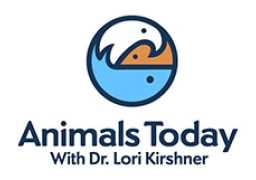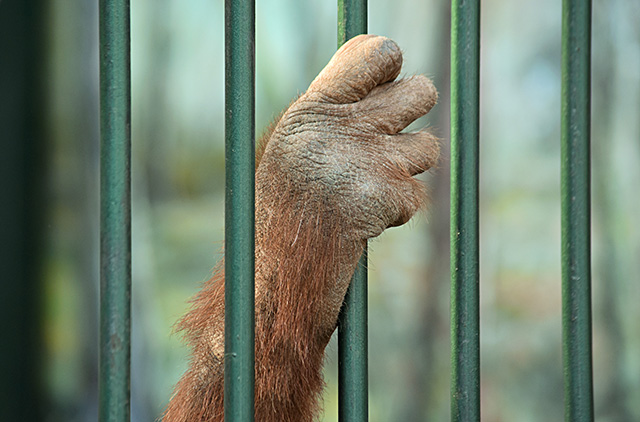Ethical Issues with Exotic Pets
Ethical Issues with Exotic Pets
Ever dreamed of welcoming a silly monkey, a flying squirrel, or a vibrant parrot into your home as a beloved pet? The idea of bonding with such incredible creatures certainly sounds enticing; however, behind the appeal of these pets, there are serious consequences and risks to their domestication. According to World Animal Protection, “The allure of owning a rare and exotic pet often overshadows the practical and ethical considerations necessary for their care.”
Firstly, many owners jump into exotic animal ownership unaware of the delicate and specific dietary, habitat, and social needs of these animals. Most exotic animals require specific environmental conditions, such as precise humidity and temperature levels, which are difficult to replicate in a home setting. For example, birds, being flock animals, require extremely high amounts of socialization, a need that most working adults cannot sufficiently provide. Moreover, the welfare of these animals often suffers when they are kept in captivity. According to the American Veterinary Medical Association, “Many exotic pets suffer from malnutrition, improper housing, and lack of proper veterinary care.” The stress of being confined to a small space, the inability to behave as they would in nature, and the lack of social interaction can lead to severe physical and psychological health issues for these animals.
Parrots, in particular, have extraordinary lifespans, often far exceeding the expectations of the average pet owner. Many large birds can live longer than 80 years, a commitment that many are either unaware of or cannot truly commit to. According to PETA, “About 85 percent of parrots are resold, given away, or abandoned within two years of being purchased.” The result is often a life of abandonment, neglect, and suffering for these highly intelligent creatures, who require complex social interactions and mental stimulation to thrive. This highlights the ethical dilemma of keeping such animals in environments that can never truly meet their needs.
The cruelty inflicted on individual animals during the exotic pet trade is immense. Many of these animals endure significant suffering due to the harsh conditions they face during capture, transport, and confinement. For instance, reptiles kept in captivity often suffer from metabolic bone disease due to improper diets and lack of UV light, leading to chronic pain and deformities. The stress of being confined to small, unnatural spaces, the inability to engage in natural behaviors, and the deprivation of social interaction cause severe psychological trauma. These sentient beings are torn from their natural habitats, living in constant fear and discomfort, enduring a life that is far from natural to them. The cruelty they experience is not only physical but deeply psychological, as they are denied the ability to thrive in an environment that meets their needs.
Furthermore, the illegal trade in reptiles is also a significant issue. A report from the International Union for Conservation of Nature (IUCN) estimates that the global illegal trade in reptiles affects over 20% of reptile species. This trade not only threatens the survival of these species but also disrupts their native ecosystems. The cruelty inflicted on individual animals during capture, transport, and confinement is immense, often leading to high mortality rates. These creatures are often kept in inadequate conditions, leading to a life of stress, illness, and early death.
The damage caused by the exotic pet trade extends beyond individual suffering and into the ecosystems from which these animals are taken. The removal of animals from their natural habitats disrupts ecological balances and threatens the survival of species. For example, the capture of wild parrots for the pet trade has led to significant population declines, endangering the species and altering the dynamics of their ecosystems. This disruption has cascading effects, leading to the decline of other species that rely on the same habitat, ultimately destabilizing the entire ecosystem. These impacts are long-lasting and may cause irreversible damage to already vulnerable species and habitats.
Additionally, the risks that come from accidental escape or potential abandonment are significant. Some species can become invasive in their non-native environment. The well-known Burmese python, originally from Southeast Asia, has become an invasive species in the Florida Everglades since the 1980s, decimating the local wildlife. According to the United States Geological Survey (USGS), the Burmese python population in the Everglades is estimated to be in the tens of thousands, causing significant declines in native mammal populations. Specifically, studies have shown a 99% decline in raccoon and opossum populations and a nearly 88% decline in bobcat populations in areas where these pythons have taken over.
The exotic pet trade poses significant ethical challenges, ranging from animal welfare issues to far-reaching ecological impacts. As an advocate for animal welfare, I encourage all potential pet owners to thoroughly research and understand the responsibilities involved in caring for any pet before acquiring one. Educating friends and family about these issues can prevent a life full of complications and suffering for both the exotic pet and its owner. As noted by the Humane Society International, “Responsible pet ownership starts with understanding the needs of the animal and ensuring those needs can be met.”
Organizations like Advancing the Interest of Animals, among many others, strongly advocate for adopting pets from shelters and rescue organizations rather than purchasing from breeders or pet stores. Animal welfare and health organizations often provide valuable resources and support for pet owners, ensuring that animals receive the care and attention they deserve.
Adoption and rescue are the most ethical choices, as individuals can make a positive impact on animal welfare while combatting the exploitation of wildlife. Also, adopting from shelters and rescues ensures that the animals have been properly taken care of, vaccinated, and spayed or neutered, reducing the risk of health complications and behavioral problems.
In conclusion, while the idea of owning an exotic pet may seem appealing, the reality is full of ethical, environmental, and practical challenges. By supporting and advocating for informed adoption and rescue over the purchase of exotic animals, we can help protect wildlife, preserve ecosystems, and ensure that all pets receive the care and attention they need to thrive. And, if you know someone with an exotic pet, you may, if needed, recommend resources such as the World Animal Protection and the American Veterinary Medical Association, as they provide guidelines and resources for exotic pet care. Additionally, educating friends and family about the ethical and practical challenges of owning exotic pets can help foster a more compassionate and responsible approach to pet ownership.
for News and Updates!



